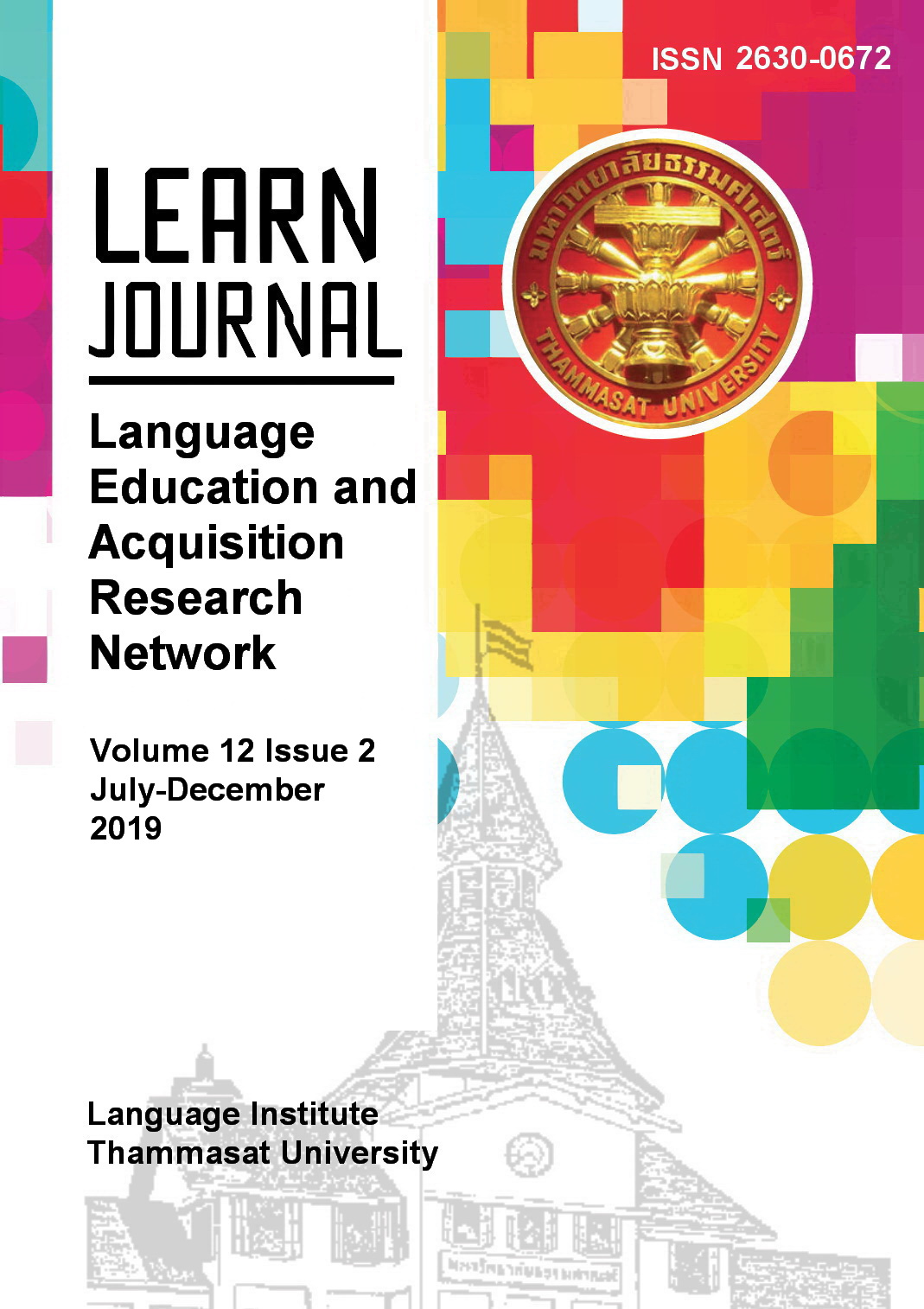The Effect of Integration of a Blended Learning and Extensive Reading Instructional Model on Thai EFL Undergraduate Students’ Learner Autonomy
Main Article Content
Abstract
To be able to read well as well as to manage one’s own reading is important because it leads to the development of learner autonomy, which is necessary for learners in the 21st century. The present study investigates the effects of integration of a blended learning and extensive reading instructional model on Thai EFL undergraduate students’ learner autonomy. This study employed a one-group, pre-test post-test design to collect quantitative data supplemented by the qualitative data from semi-structured interviews. The sample consisted of forty English major students who enrolled in the Reading for Text Interpretation Course at a public university in Suratthani, Thailand. The research instruments included the learner autonomy questionnaire and the learner autonomy interview protocol. The findings revealed that learner autonomy increased with statistical significance after the treatment. Based on the findings, it could be concluded that integration of a blended learning and extensive reading instructional model could be effectively implemented to promote learner autonomy of EFL students.


